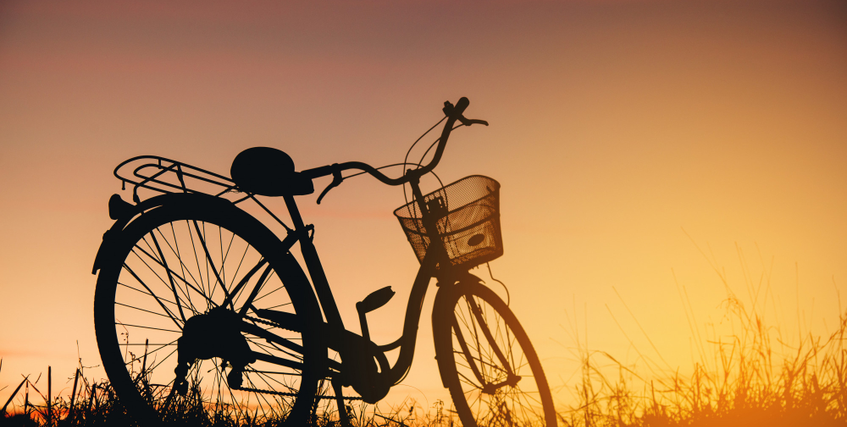Phone : +49 2233 71 39 084
E-Mail : [email protected]
10 Tips for More Sustainability in Daily Life

Everyone emits CO2 every day. just his breath. We can't hold our breath right now, but even small things can reduce our carbon footprint. We must act as sustainably as possible in everything we do to counter climate change. This is especially important as we all make changes, starting with the daily life of each individual.
1. Always bring your own package
You can carry an old baking bag, plastic container, jute sack or cloth net with you wherever you go... Gone are the days when people looked at you funny. Even the major supermarket chains in its market advertise that customers can bring their own boxes. Like many other tips for being more sustainable in your daily life, carrying your own packaging takes some 'practice' or some other plan. But it's very easy once you get used to it.
2. Make your own cleaning products
Although it may seem a little difficult at first, it is actually very easy. We now manufacture almost all general cleaning products in-house. Not only is it eco-friendly, it's also kind to your wallet. The essential ingredient is water, all the ingredients are cheap or you already have them in your home.
3. Do not use certain things in the kitchen
Baking paper: Before baking paper was invented, it was simply left out. Biscuits, baked vegetables, etc., on a baking sheet without parchment paper. The only "disadvantage" is that you have to clean the baking sheet later. But our environment should be valuable to us.
Cling film: Most of the things you want to keep can be packed in tins or plate-lined bowls. Beeswax wraps are also a great alternative and are reusable.
Kitchen rolls: Another example of something that didn't exist before. Of course, it's also useful for wiping or cleaning something with a few pieces of kitchen paper. You can also store old cloth napkins, shredded tea towels, rags, etc. You can also use it. After use, rinse gently with running water to finish.
4. Buy second-hand or sustainable fashion items
Another classic way to make your daily life more sustainable is to avoid unnecessary shopping, especially in the fashion industry. The textile industry is one of the most polluted industries in the world and exploits not only workers but also the environment to a great extent. If you "need" something new, reach for highly manufactured fashion or, better yet, secondhand. There are already so many textiles in circulation that there is really no need to produce new ones.
5. Shop without packaging
To buy unpackaged, you do not have to go to unpackaged stores, which are often quite expensive. All supermarkets have large portions of fruit and vegetables, baked goods, and sometimes even unpackaged pasta, nuts and grains. If you can't find what you're looking for there, it's best to visit the nearby weekly market. In fact, everything is out there in unpackaged or returnable jars that you can bring back.
6. Produce less waste in personal care
It is especially easy to generate less waste and make your daily life more sustainable, especially in the bathroom. Make-up removal cottons can be replaced with reusable cloth pads. Shower gel and shampoo are now sold completely or almost unpackaged in many pharmacies. Likewise toothpaste and classic hand soap. Toothbrushes are made of bamboo, and you can find plastic-free cotton swabs everywhere.
There are also natural cosmetics that protect not only the skin, but also the environment, as, among other things, microplastics and other harmful substances are avoided.
7. Prefer regional and seasonal products
This is followed by another very important tip: Try to buy more regionally and above all seasonally if possible. Avocados and juicy mangoes are surely delicious for everyone, but unfortunately they are not grown in Germany and are shipped thousands of miles. This creates large amounts of CO2.
In addition, many of these crops require an endless supply of water, a valuable commodity that can be better served to the population in their cultivation areas. As a result, the consumption of food that is not locally produced is not fully sustainable.
8. Cycle or use public transport
If possible, stop driving altogether. It's usually very easy to implement, especially for city dwellers, and best of all: you save an incredible amount of time. Cycling is much faster and healthier. If you want more convenience, take one of the numerous public transport options and protect your wallet and the environment alike.
9. Buy organic food
If you want to do more, buy organic. With this decision, you can make an important contribution to prevent further deterioration of our environment. In addition, farmers and producers are paid much more fairly than conventional agriculture. I think it's the least we'd do for an industry that keeps us all alive.
10. Share
Why would anyone need their own car, lawnmower or drill? Think about it, there are countless things that most people keep somewhere but rarely use.
Best example: cars. A car stops outside your home or office and goes unused for most of its life. Sharing all of these or using a formal sharing model may be a more sustainable solution. Like almost all the tips mentioned here, this action not only protects the environment but also our wallets.
